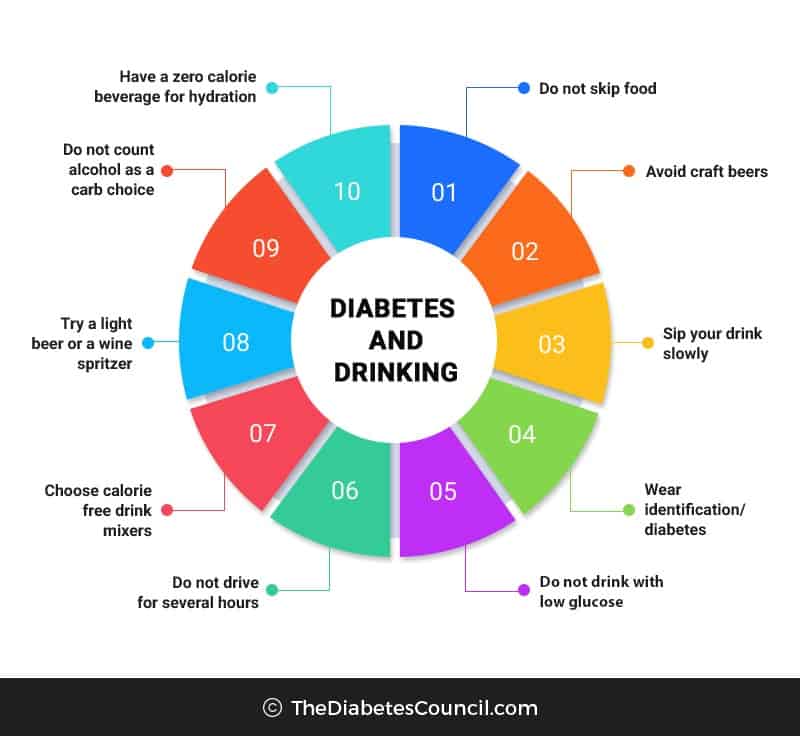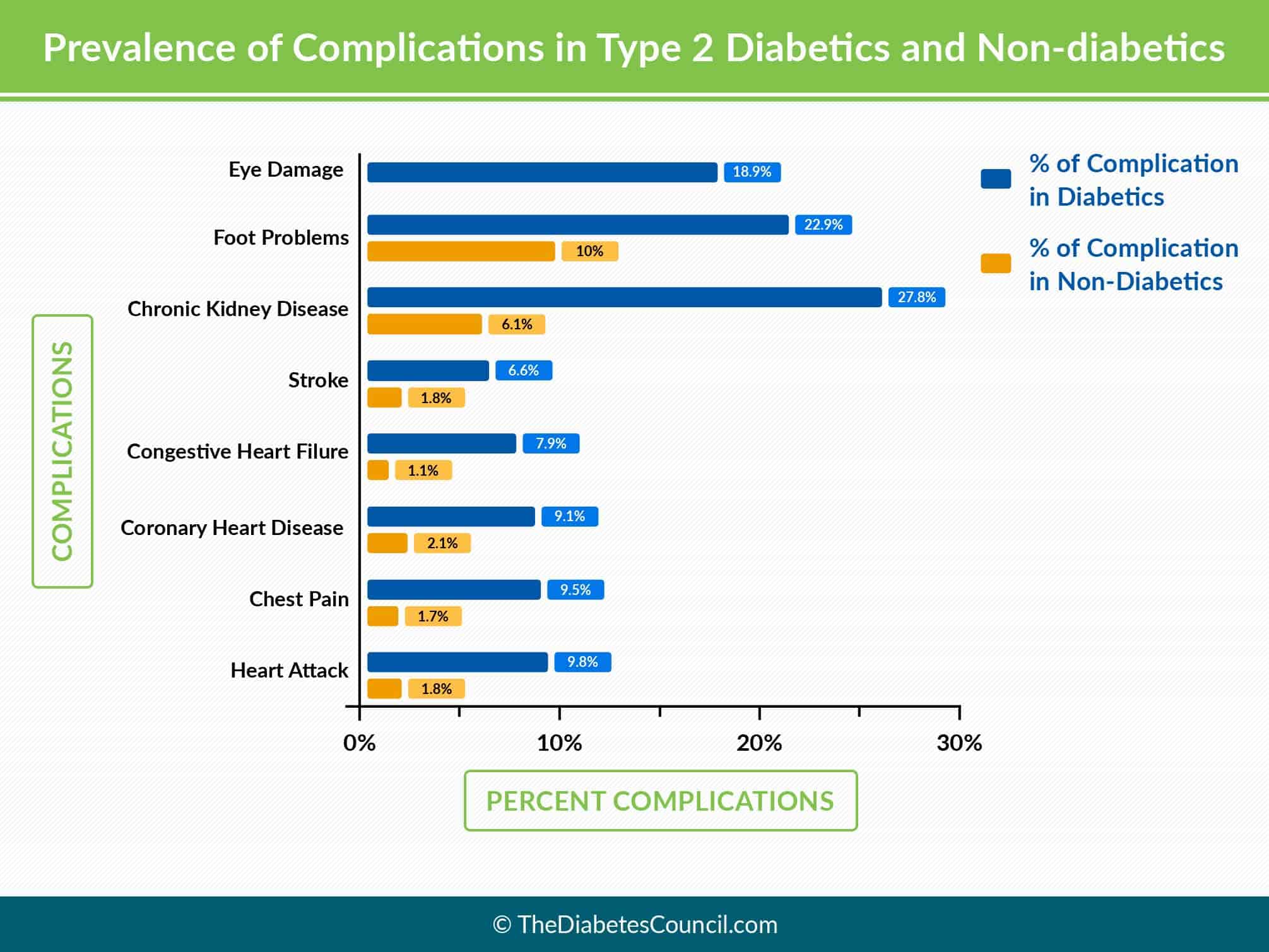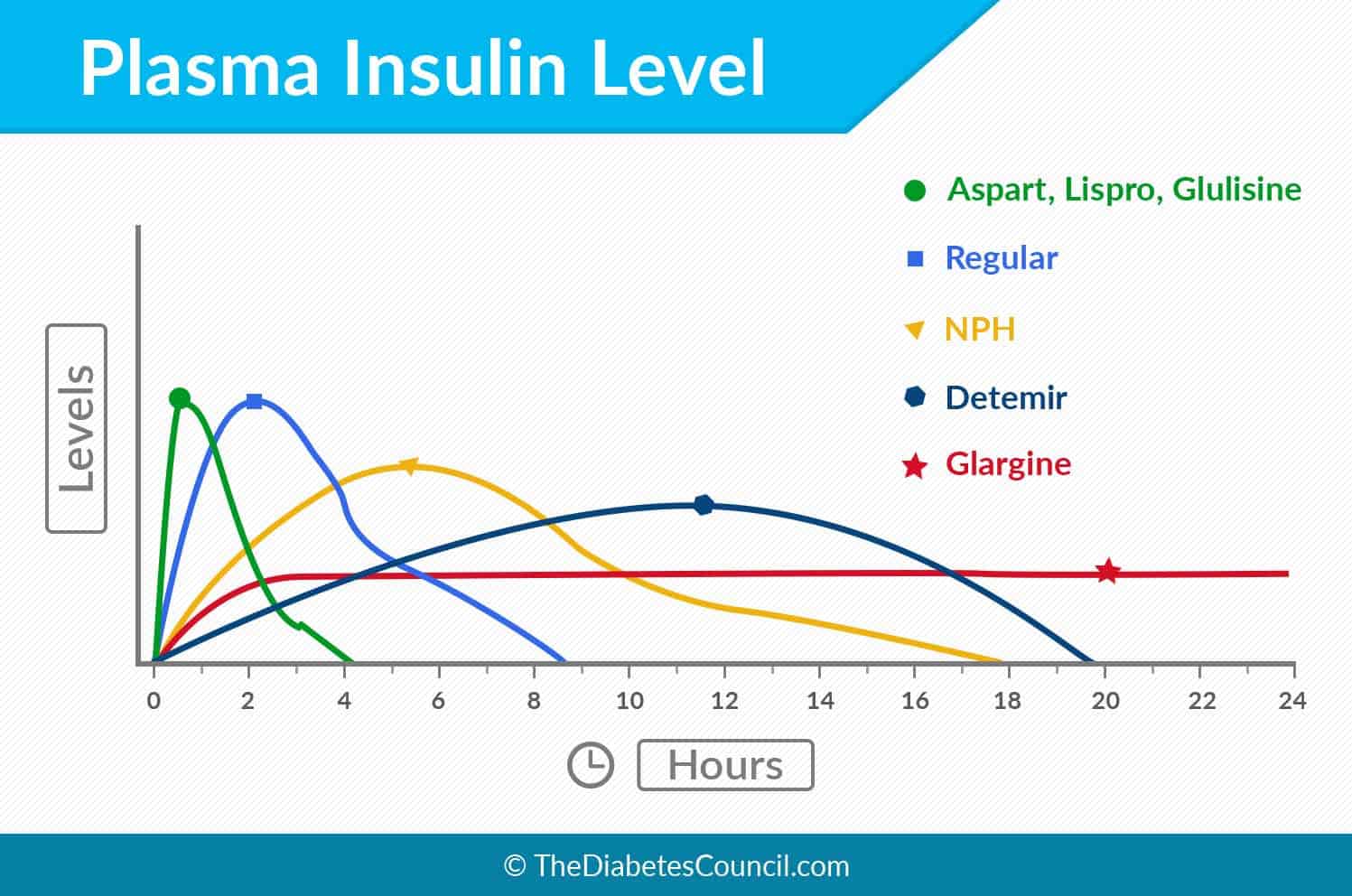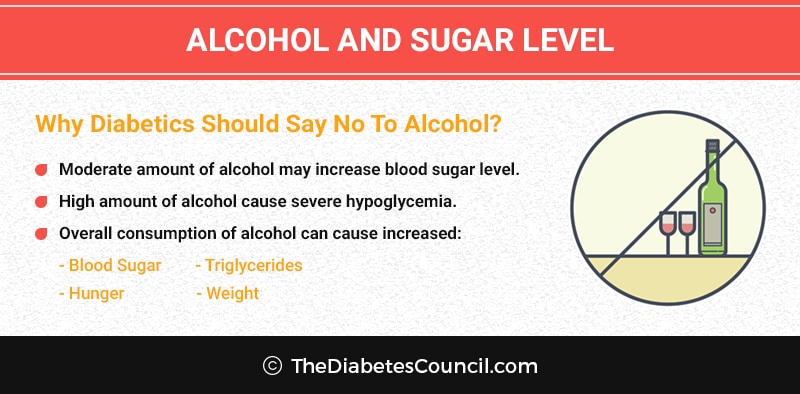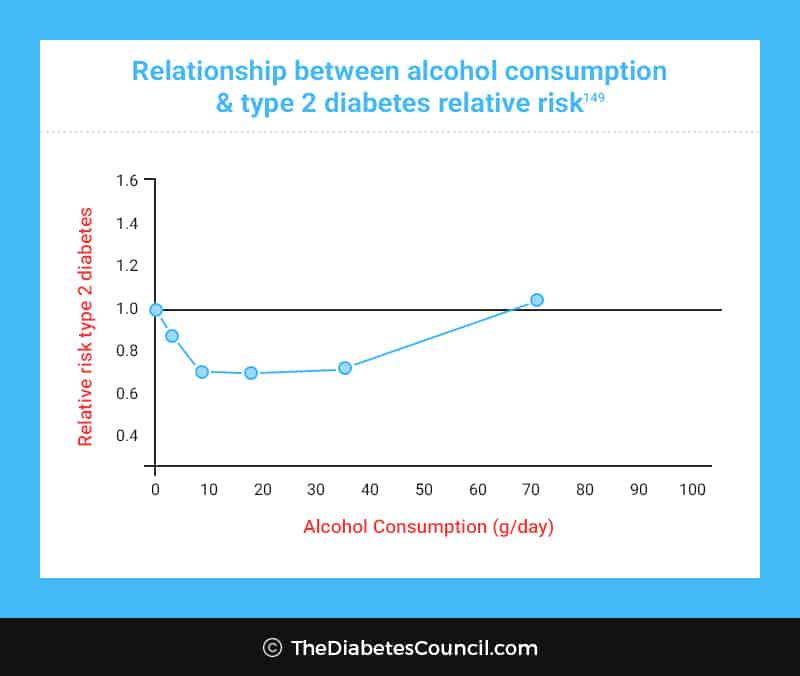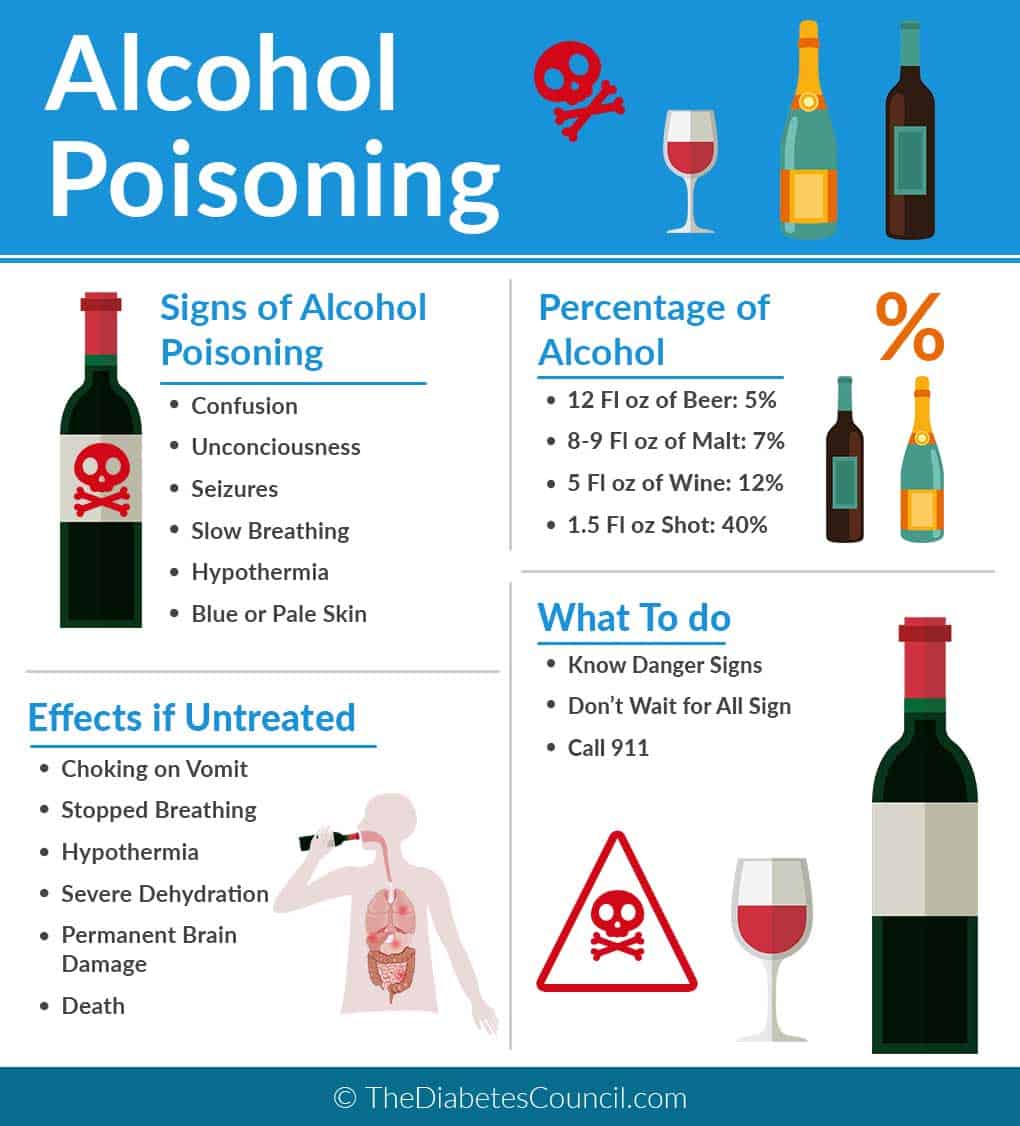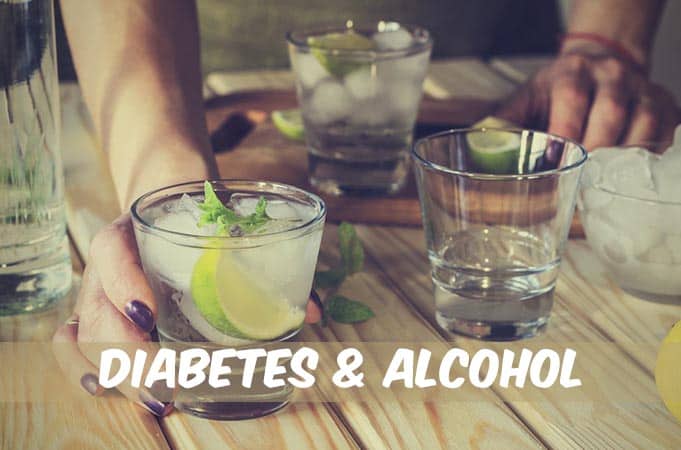
Alcohol, which is made from fermentation of yeast, sugars, and starches is a very commonly used substance.
In fact, 87.6% of adults aged 18 and over have consumed it at some point in their lifetime. It is also known as a depressant due to its capability to depress the central nervous system. About 71% have drank in the past year.
When enjoyed in moderation, alcohol does not pose a risk, and actually has some health benefits to it.
However, for those with diabetes, it can be a struggle to maintain a safe blood sugar while drinking. It is very easy to become hypoglycemic (low blood sugar) or hyperglycemic (high blood sugar), depending on which type of diabetes you have and the medications that you take. Understanding the effects drinking has on diabetes is very important.
This article discusses the risks and benefits of drinking.
It also explains what drinks are best for individuals with Type 1 and Type 2 diabetes.
Contents
Can I drink if I have diabetes?
You can most certainly drink alcohol with diabetes. The key, just like many other things, is to do so in moderation.
Also, if your blood sugar is not under good control, you should not drink because it can cause it to become too high or too low. Your doctor should be aware of your drinking habits so that they can make sure that you are not experiencing any complications related to it.
I recommend reading the following articles:
How does alcohol affect diabetes and my blood sugar levels?
Normally, the liver is the organ that stores and secretes glucose to the cells in the body to fuel them when you are not eating. The liver is also responsible for cleansing the body of toxins. The liver does not recognize alcohol as food. Instead, it sees it as a drug and a toxin. When alcohol is in the system, the liver changes gears and begins to detoxify in attempt to get rid of the alcohol. Unfortunately, the liver cannot do both jobs at the same time. While it is detoxifying, it stops secreting glucose. On average, the liver can only breakdown one drink of alcohol per hour.
For someone who is on insulin or certain medications (Glipizide and Amaryl are two examples), this can pose to be dangerous. Unless you are eating, the insulin continues to work and drop the blood sugar. This can happen very quickly if appropriate actions are not taken.
Benjamin Turner et al, in The Effect of Evening Alcohol Consumption on Next-Morning Glucose Control in Type 1 Diabetes, state alcohol as one of the recognized risk factor for hypoglycemia in people with type 1 diabetes. An estimated one fifth of severe hypoglycemic episodes are attributed to alcohol consumption. For their study six men with type 1 diabetes were recruited. The results of the study confirmed that evening consumption of alcohol causes low blood glucose in the morning after. This increases the risk of hypoglycemia after breakfast.
Many types of alcohol are high in sugars. Those with Type 2 diabetes can increase their risk of hyperglycemia by drinking these beverages. Having high blood sugar can cause many problems (see the chart below for a list of them). All drink labels should be read before consumption. See the section of this article entitled “What kind of alcohol is the best to drink” for more nutritional information regarding alcoholic beverages.
How does alcohol affect my medications or insulin?
There are certain pills for diabetes, such as sulfonylureas, that work by telling the pancreas to keep making insulin all the time. Normally this is a great thing, but if you aren’t eating anything or if your liver isn’t making any glucose because it is busy cleaning out the alcohol, your blood sugar can drop pretty quickly. Talk to your physician about the pills that you are taking and if it is safe to drink with them.
As far as insulin goes, you should talk to your doctor about your insulin dosages when you plan on drinking. If you have an insulin pump, your doctor may want you to lower your basal rate while you are drinking. If you take long acting insulin that peaks hours after you administer it, your doctor may want you to reduce the dosage. Make sure you are honest with your physician about the amount and the type of alcohol that you drink. This can help them make the most appropriate adjustments to your medications. If you are unsure about how your medications work, ask your doctor to explain them to you.
Alcohol should not be ingested if you are on antihistamines, beta blockers, anti-depressants, pain medications, or antibiotics. Talk to your doctor about your medications and their interactions with alcohol.
What are the dangers of drinking alcohol with diabetes?
There are several dangers that are associated with diabetes and drinking. Most importantly, you should not drink if your glucose is not under good control. Drinking too much or when your blood sugar is not under control can lead to complications and even death.
Damage to the body includes:
- Worsened nerve problems
- Liver damage or cirrhosis
- Increased triglycerides
- Enlarged heart and heart disease
- Increased blood pressure
- Damage to the eyes
- Pancreatic, breast, mouth, liver, and larynx cancers
- Fetal alcohol syndrome or miscarriage
Drinking alcohol with Type 1 diabetes is especially dangerous because being intoxicated and hypoglycemia have the same symptoms.
These include:
- Drowsiness
- Memory loss
- Blurred vision
- Unsteady movements
- Passing out
- Slurred speech
This similarity can lead to a delay in treatment. Also, Glucagon, the medication that is carried by emergency medical personnel to increase blood sugar rapidly, does not work when alcohol is in the system and it can lead to a very quick death.
Dalal Alromaihi’s case study, Challenges of Type 2 Diabetes in Patients with Alcohol Dependence, points out that alcohol consumption can lead to reactive hypoglycemia. If you have a meal rich in carbohydrate and consume alcohol at the same time, there will be an exaggerated response in insulin which will eventually result in hypoglycemia several hours after the meal. Hypoglycemia in type 2 diabetes occurs due to decreased gluconeogenesis.
In a separate study, researchers suggest that regular consumption of alcohol consumption, two to four drinks a day, can indeed interfere with blood sugar control which increases the risk of impotence, peripheral neuropathy, retinopathy. Furthermore, drinking more than 10 to 12 drinks a day for a person with diabetes can cause ketoacidosis and hypertriglyceridemia, both of which can be deadly.
Alcohol and risks of liver damage
When the liver is cleansing the body of alcohol, it can be overloaded if you drink more than it can process. If this happens, then liver damage can occur. For people with diabetes, that is very dangerous because the liver helps to regulate blood sugar levels.
Signs of liver disease are:
- Jaundice (yellowing) of skin or eyeballs
- Nausea or vomiting
- Confusion or drowsiness
- Swelling in the abdomen
- Pain in the upper right quadrant
Liver disease can lead to problems that include:
- Fluid in the abdomen
- Kidney failure
- An enlarged spleen
- Problems with bleeding veins in the digestive tract
- Confusion, brain damage, or coma
- Liver cancer
Once the liver damage is done, it cannot be reversed. That is why prevention is key. Drinking in moderation is the best way to prevent liver damage or disease. Talk with your doctor about your drinking habits to see if you are at a high risk for developing it.
Gestational diabetes and alcohol
Gestational diabetes is a condition that affects some pregnant women. During pregnancy, high blood sugars become a problem and can cause problems for the mother or the baby if not controlled. All women, regardless if they have gestational diabetes or not, should refrain from drinking alcohol during pregnancy.
Drinking while pregnant can lead to:
- Brain damage including learning disabilities and speech and language delays
- Fetal Alcohol Syndrome
- Miscarriage
- Premature birth
- Heart defects or hearing problems
- Low birth weight
- Still birth (born lifeless after 20 weeks)
What kind of alcohol is best to drink with diabetes?
The chart above lists several types of alcohol and the carbohydrate content in each of them. The best choice of alcohol is different for those with Type 2 diabetes and Type 1 diabetes. Type 2 need to watch their sugar intake, while Type 1 need to watch their alcohol percentage.
For those with Type 2 diabetes, drinks low in carbohydrates are best. These include light beers, dry wines, and liquor. You should stay away from sugary mixed drinks or cocktails such as Pina Coladas. If you do need a mixer, diet drinks or club soda are recommended.
Individuals with Type 1 diabetes or who are on medications that stimulate insulin production should drink beverages that are low in alcohol content. Drinks should be sipped very slowly. Another beverage, such as water, should be consumed along with alcohol to keep the level of alcohol in the blood down and the body hydrated. Also, it is very important to eat while you are drinking to keep your sugar levels from bottoming out.
Diabetes and sugar free alcohol
The only alcohol that is sugar free is liquor. You should be very carefully when drinking liquor because it does contain a high alcohol content. There are not drinks that are made specifically for those with diabetes, like sugar-free cookies and candy.
Can I consume alcohol on an empty stomach with diabetes?
You should never drink alcohol on an empty stomach. Alcohol is absorbed by the stomach. It enters into the bloodstream and then the “buzz” feeling that many experience while drinking begins to hit when the blood alcohol content increases. If there is food in the stomach, it acts as a buffer and the rate of absorption is slowed down. Without the food, the alcohol content can go up too quickly. It is always important to eat a well balanced meal before drinking, including protein, carbohydrates, and fats. It is also critical to consume other beverages, such as water while drinking to stay hydrated and to dilute the alcohol in the blood stream.
Does diabetes affect alcohol absorption?
Diabetes itself does not have any affect on the rate of absorption of alcohol. However, if you are watching what you eat and counting carbohydrates, you may not eat enough. This can cause alcohol to be absorbed much faster than someone that has eaten a well-balanced meal prior to drinking.
Should I test my blood sugar before consuming alcohol?
You should always check your blood sugar prior to drinking. Having poor control of your diabetes or low blood sugar puts you at an even higher risk of developing hypoglycemia. Let’s revisit the role of the liver. Normally, it secretes glucose and helps to regulate the blood sugar. When alcohol is in the system, it begins to clean the body of the alcohol and toxins, and stops secreting glucose. If you already have a low blood sugar, then it will only get lower, and can lead to many complications.
Not only should you check your blood sugar before drinking, but you should also check it while you are drinking and frequently for 24 hours afterwards. Your sugar can drop up to 24 hours after the consumption of alcohol.
Why is it better to consume less?
Women with diabetes are recommended to only have 1 drink per day, while men are allowed up to two. There are benefits for moderate drinking, but any more than moderate, the benefit disappears and only complications remain.
For individuals with Type 2 diabetes, excessive drinking adds a lot of empty calories and sugars that can cause their blood sugar to increase. Also, drinking too much alcohol can stimulate your appetite and cause you to eat foods that your body does not need.
One study found that the more a person with diabetes drinks, the less likely they are to do things that are good for them such as exercising, taking medications on time, refraining from smoking, and eating healthy.
For those with Type 1 diabetes or those who take sulfonylureas which tell the pancreas to make insulin constantly, drinking too much can cause them to forget to eat. They are at a very high risk for hypoglycemia because without food, they have no sugar intake. Also, as mentioned before, drinking too much can cause the same signs as hypoglycemia and a low blood sugar may not be detected quickly enough.
One study with rats actually showed that drinking too much told the pancreas to make more insulin and dropped the blood sugar even lower.
Benefits of moderate alcohol consumption
Oddly enough, some studies have demonstrated that moderate alcohol consumption (½ to 2.5 drinks per day) can decrease the prevalence of Type 2 diabetes. See the following chart to see that refraining from drinking does not change the risk and drinking too much actually increases the risk.
Other benefits of moderate drinking include:
- Increased HDL (good cholesterol)
- Decreased risk of heart disease
- Decrease risk of stroke
- Lower risk of gallstones
The same study, conducted by Sofia Carlsson et al, suggests that while moderate consumption may reduce the risk of type 2 diabetes, binge drinking and high consumption of alcohol beverages may increase the risk of type 2 diabetes, especially in women.
Once again it is important to note that these benefits are only for those who drink moderately. You should talk with your doctor about your risks and your alcohol consumption.
FAQs
Is there any relationship between diabetes and alcohol dependence?
If you have a personal or family history of alcohol dependence, you should not start drinking. Many people with diabetes experience depression and alcohol dependence can become an outlet to deal with their feelings. If you do think that you or someone that you know has a drinking problem, seek help from your doctor or from sources such as Alcoholics Anonymous.
Drinking alcohol in excess can lead to pancreatitis. This can lead to Type 2 diabetes because the pancreas is the organ that is responsible for secreting insulin. Also, people who have alcohol dependence tend to care less about their self care habits. This can increase the risk of developing diabetes if you eat unhealthy and do not exercise.
How do you know you are substance abusing with diabetes?
Alcohol is not considered a food. It is a drug that that you can become addicted to and begin to abuse.
Signs of alcohol abuse include:
- Inability to relax without a drink of alcohol
- Feeling guilty about drinking and trying to hide it
- Passing out and forgetting what you did while drinking
- Drinking more than you planned on a regular basis
Please seek help if you believe that you may have a substance abuse problem.
What is alcohol poisoning?
Alcohol poisoning occurs when someone drinks too much alcohol in a short amount of time. When you drink alcohol, it is absorbed by your stomach and quickly enters the blood stream. If the liver is unable to filter it out fast enough, the blood alcohol content becomes too high and you can get alcohol poisoning.
Signs of alcohol poisoning include:
- Vomiting
- Confusion
- Inability to wake up
- Breathing slowly (under 8 breaths a minute)
If you see someone that you suspect has alcohol poisoning, it is important to immediately call 911. Do not try to give the person anything by mouth. You should not move them unless they are in danger (such as in water), but you should move any furniture away from them.
If untreated, alcohol poisoning can lead to:
- Choking on vomit
- Brain damage
- Severe dehydration
- Seizures
- Death
What should I do if I drink too much and I have a hangover?
There are many available remedies that claim to help with hangovers. A hangover is the feeling that you have after drinking too much the night before.
Some of the common solutions for a hangover include:
- Eating carbohydrates
- Drinking water
- Drinking sports drinks
- Drinking coffee
- Sleep
- Ibuprofen
It is very important to check the sugar content of the drinks that you consume while trying to remedy a hangover. Sports drinks and other beverages can have a lot of sugar in them which can raise your blood sugar. Try to make smart choices such as water.
Further reading:
It is very important, if you've been drinking, to check your sugar regularly for the next 24 hours. Your blood sugar can drop for up to 24 hours after alcohol consumption.
The Do’s and Don’ts of drinking with diabetes
If you only read one part of this article or send it to a friend, make it be this section. The Do’s and Don’ts provide a quick list of things that can save your life and make drinking alcohol safe.
Do:
- Check your sugar before drinking, while drinking, and frequently for 24 hours afterwards. Always check it before bed and set an alarm during the night
- Look at the label and know the amount of alcohol and nutritional content of each beverage
- Mix liquor with club soda or diet drinks
- Wear a medical alert bracelet when you are drinking
- Sip beverages slowly
- Keep hydrated while drinking with non-alcoholic drinks like water
- Eat protein, carbohydrates, and fat before and during drinking
- Take your glucometer with you and tell the people that you are with about your diabetes in case anything happens to you
- Carry glucose tabs or gel or a snack with you
- Be honest with your doctor about what you are drinking and how often
Do Not:
- Drink if your blood sugar level is not under good control or if it has been low lately
- Drink on an empty stomach. The stomach will absorb alcohol faster this way
- Count alcohol in your daily carbohydrate count
- Participate in physical activity while drinking without eating. Dancing, for example, will lower your blood sugar even more
- Adjust your medications without talking to your doctor
Drinking can be enjoyed if it is done responsibly. Educate yourself and others on ways to smartly indulge and how to prevent yourself from having complications or even dying. Those with Type 1 diabetes or on certain diabetes medications should watch out for life-threatening low blood sugar. Drinking alcohol with Type 2 diabetes can increase the blood sugar and cause complications if smart beverage choices are not made. Remember to always talk to your doctor about your lifestyle choices. As always, please do share your any comments, safe practice tips, stories, etc with other readers in the comment box.
TheDiabetesCouncil Article | Reviewed by Dr. Christine Traxler MD on May 21, 2020
References
- http://www.medicalnewstoday.com/articles/312918.php
- http://www.webmd.com/diabetes/guide/drinking-alcohol?ecd=
- http://www.diabetes.org/food-and-fitness/food/what-can-i-eat/making-healthy-food-choices/alcohol.html
- http://www.diabetes.org/food-and-fitness/food/what-can-i-eat/making-healthy-food-choices/what-can-i-drink.html
- http://www.everydayhealth.com/type-2-diabetes/diet/drinking-and-type-2-diabetes/
- http://drugabuse.com/guides/substance-abuse-and-diabetes/
- http://clinical.diabetesjournals.org/content/30/3/120
- http://guidelines.diabetes.ca/cdacpg/media/documents/patient-resources/alcohol-and-diabetes-feb2014.pdf
- http://care.diabetesjournals.org/content/26/10/2785
- https://pubs.niaaa.nih.gov/publications/arh22-3/211.pdf
- http://care.diabetesjournals.org/content/24/11/1888



